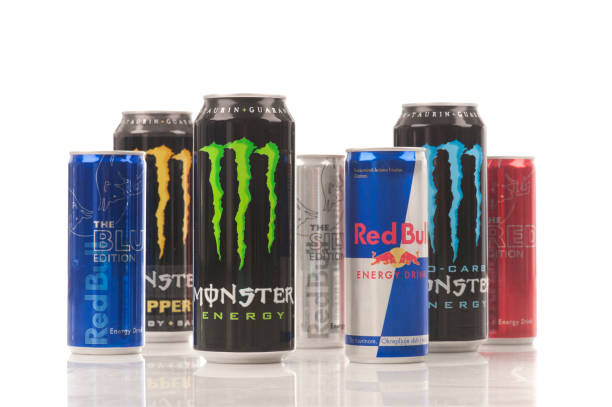With the start of AP Testing, and finals week being not that far away, many Preuss scholars are studying even more to prepare themselves for these tests, sometimes staying up late to get some extra studying in. Oftentimes, scholars find themselves in a situation where they are tired and don’t have enough energy to work, resorting to energy drinks to continue studying or to complete homework assignments. Although energy drinks, when consumed in moderation, are typically safe, it is important to understand the negative effects which can accompany drinking them as a habit.
So what exactly is an energy drink composed of? The various stimulants and ingredients which are in energy drinks tend to vary by brand; however the one ingredient they all have in common is caffeine. Caffeine is a stimulant that prevents the sleep receptors inside one’s brain from being able to bind with a chemical known as adenosine, which is responsible for making a student sleepy. In some instances, consuming caffeine as a boost sounds like a great idea, but if consumed late at night for studying or working, it can have negative effects. If a Preuss scholar drinks caffeine the night before a test in order to get a little more studying in, they risk falling asleep later and disrupting their internal clock, which can then lead to them waking up tired in the morning, hindering their performance throughout the day.
Aside from caffeine, energy drinks like Redbull and Monster contain other stimulants like taurine, guarana, and L-carnitine, in addition to a load of sugar. According to the National Library of Medicine, stimulants such as these can lead to a sudden increase in blood pressure, heart rate, and breathing. If taken in occasionally, most long lasting effects typically do not occur; however if taken often, adverse effects can occur. According to the Cleveland Clinic, the various stimulants within energy drinks can also increase the risk for conditions like anxiety, depression, headaches, mood swings, tachycardia, and even strokes. Knowing these effects is important in order for scholars to understand that drinking energy constantly to stay up studying is not a good idea.
So what exactly should Preuss scholars look for if they do want an energy drink? Energy drinks tend to contain very high amounts of caffeine, and although the U.S Food and Drug Administration has not set a specific limit for teenagers, Columbia University Irving Medical Center recommends consuming no more than 100 milligrams per day. In addition to staying wary of caffeine content, steering away from energy drinks which contain stimulants is also advisable since they can further contribute to health issues. Typically, energy drinks have a list below the nutrition facts label which states the stimulants which the drink has as well as the caffeine content.
Energy drinks can seem beneficial at first, and although they aren’t necessarily bad when consumed in moderation, it is important to understand that they should be drunk in moderation and not used consistently.







